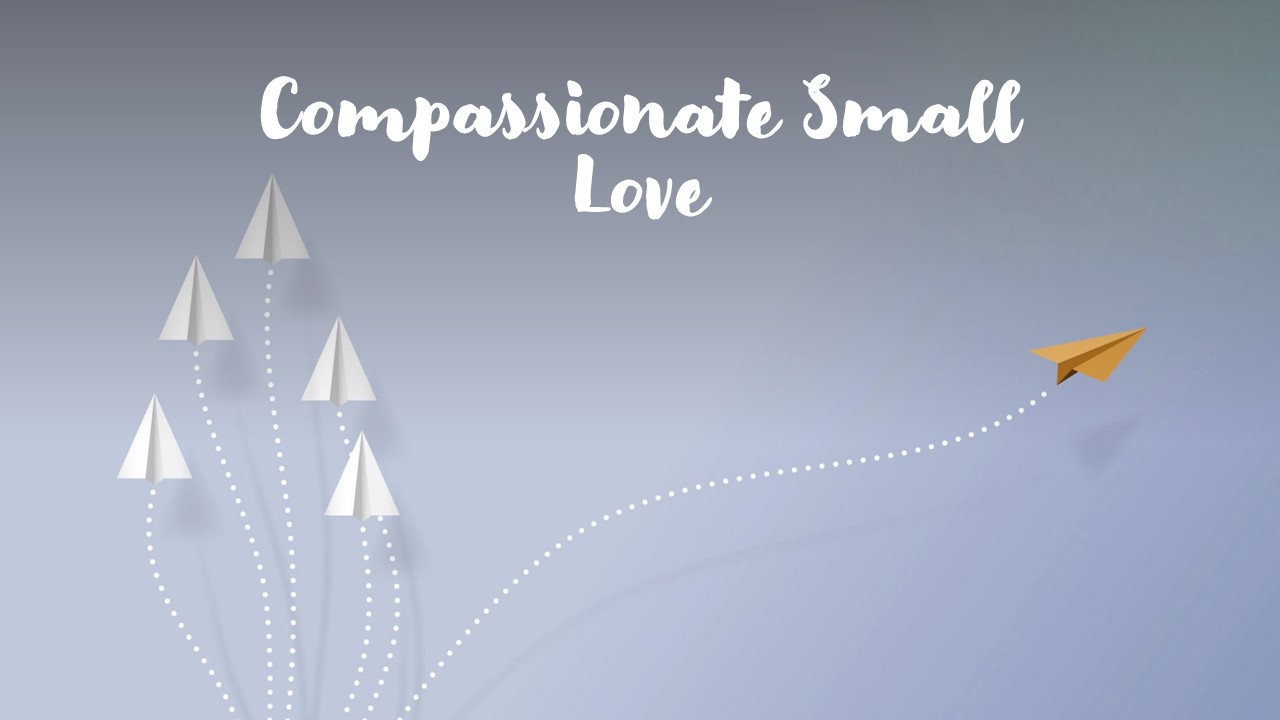Compassionate love is a benevolent emotion that involves giving as a way of loving. The compassionate feelings and actions of small love help another person’s well-being. This form of small love emphasizes the well-being of another person, even in occasional daily situations.
Men and women may exhibit compassionate love or the bystander effect in the daily circumstances they encounter. “Small love” means loving the neighbor or another person we occasionally encounter.
When Are People More Willing to Help in an Occasional Interpersonal Encounter?
Let’s look at the experimental situation that researchers set up to explore this question.
“At 10:00 a.m. on December 14, 1970, a sunny day in Princeton, New Jersey, the first batch of volunteers arrived for a psychology experiment. The participants were seminary students at Princeton Theological, studying religion in preparation for a life of spiritual service.”
When the participants arrived at the study, they were informed that the experiment would look into the career paths of seminarians. Researchers gave each participant reading material to help them prepare a short talk on the topic.
They gave half of the participants a sheet of paper with questions and suggestions for making the most of their seminary education. They gave the other half a copy of the well-known New Testament parable of the Good Samaritan, who stops on the side of the road to assist someone in need.
The volunteers who participated in the experiments were unaware that all of this was just a prelude.
Then, the administrator of the experiment told each volunteer that, because there wasn’t enough room, they would have to walk to another building to give their talk. They gave the participants a map that showed how to get from one building to the next. The route went through an alley. One by one, the people took off. When participants walked into the alley, each of them encountered a startling sight:
“a pile of a man, slumped and motionless in a dark doorway, moaning in distress.”
How Helping Others Could Make You Feel Less Rushed
The Critical Moment of the Experimental Situation to Show Small Love
Here was the critical moment of the experiment: “Who would stop to help, like the Good Samaritan, and who would pass him by?”
“The groaning man, a disguised member of the research team, noted the reactions of each seminarian. Some hurried past without noticing him. Others looked or nodded but didn’t stop. Some paused briefly to ask if the man was all right. And then there were a few “superhelpers” who guided the suffering man inside, refusing to leave until care had arrived.”
How Helping Others Could Make You Feel Less Rushed
Who slowed down? Who was in a hurry? What made a person decide whether or not to help another person in need?
Researchers John Darley and C. Daniel Batson expected that priming the students’ minds to think about the Good Samaritan would make them more likely to help a person in need. The intention was to demonstrate scripture’s power to inspire moral behavior by showing “small love” to a stranger.
What the Results of the Study Revealed
However, the results of the study did not support the expected effect:
“Students who hadn’t read the parable helped (or neglected to help) in similar numbers to those that had. None of the other variables Darley and Batson tested—such as what type of religious beliefs the participants held—made a difference, either.”
How Helping Others Could Make You Feel Less Rushed
The only factor that affected the willingness to help was the time pressure.
“Students who were told to hurry to their destination were significantly less likely to stop to help a man in pain. Students who were told they had a bit of spare time to make the walk stopped more frequently and offered more substantial forms of help.”
Darley, J. M., & Batson, C. D. (1973). ” From Jerusalem to Jericho”: A study of situational and dispositional variables in helping behavior
Surprisingly, seminary students who devote their lives to serving others are less likely to help someone in obvious need if they are short on time.
The feeling that we lack time to help others can be deceptive. And, actually, we can extend our time by connecting with others.
